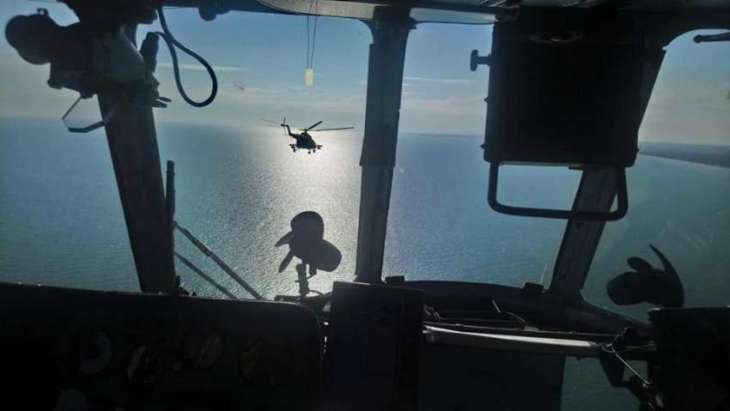The European Parliament on Thursday passed a non-binding resolution urging EU members to impress on Russia that the bloc's sanctions could be toughened in case of any escalation in the Azov Sea.
BRUSSELS (Pakistan Point News / Sputnik - 26th October, 2018) The European Parliament on Thursday passed a non-binding resolution urging EU members to impress on Russia that the bloc's sanctions could be toughened in case of any escalation in the Azov Sea.
The resolution urged also for the appointment of an EU special envoy for Crimea and Donbas, "whose responsibilities would also cover the Sea of Azov."
The European Parliament's Defense and Security Committee listened to reports alleging that Moscow was a threat in the Sea of Azov, enclosed between Ukraine and Russia.
Tensions between Russia and Ukraine in the Azov Sea rose earlier this year after Ukraine detained two Russian ships for calling in Crimean ports. Russia described Kiev's move as "maritime terrorism" and ramped up patrols off its Azov coast, leading to accusations of illegal searches of vessels from Ukraine.
The tensions around the sea stem, at least partly, from its proximity to the Crimean peninsula. In 2014, the region rejoined Russia as a result of a referendum where over 90 percent of those who cast their ballots backed the reunification. Kiev has refused to recognize the results of the vote and continue to consider Crimea part of Ukraine. Russian officials have repeatedly pointed out that the vote had been carried out in accordance with the international legislation.
The European Union has imposed restrictive measures against Russia and the peninsula, specifically.
The lawmakers on Thursday reiterated their concern over the alleged participation of some European companies in the construction of the Kerch Strait Bridge, linking mainland Russia to the Crimean peninsula. These firms would have been breaching EU sanctions. Sputnik has contacted EU External Affairs spokespersons, but has been unable to find out the Names of these companies.
Ukrainian President Petro Poroshenko welcomed the parliament's resolution and the parliament's call for "additional targeted sanctions."
"I hope for the practical implementation of these initiatives by the institutions and the EU member states," Poroshenko wrote on Facebook.
Russian Permanent Representative to the European Union Vladimir Chizhov pointed out that the status of the Azov Sea was regulated by a 2013 agreement between Russia and Ukraine, so this body of water was not covered by the UN Convention, cited in the resolution.
"I have a feeling that some of those who supported the resolution on Azov do not have a clear idea of where the sea is and what its status is and how it differs from the status of the Atlantic Ocean or the Mediterranean Sea," Chizhov said on the sidelines of the Eurasian Economic Forum in Verona.
Gilles Lebreton, a French member of the Europe of Nations and Freedom Group at the parliament, believes that the European Union should avoid exacerbating the situation and taking sides.
"Ukraine is very active in European circles, trying to persuade the Commission and the [members of the European Parliament] MEPs that Ukraine is a victim of Russian aggression ... The European Union should have the wisdom not to put oil on the fire ... The EU should never have taken a partisan position, as it has done from the onset of the conflict, by siding with a government in Kiev," Lebreton told Sputnik.
The member of the parliament added that he was not aware of any European companies participating in the construction of the Kerch Strait Bridge.
"I have no knowledge of it and nobody came up with proof thereof in the European parliament," Lebreton said.
Meanwhile, the tensions continue: on Friday, immediately after the resolution was adopted, the State Border Guard Service of Ukraine said Igor Rulev, head of the Russian delegation of the Ukrainian-Russian commission on fisheries in the Sea of Azov, was denied entry to Ukraine. According to the border service, the denial was linked to the fact that Rulev and other members of the commission had visited Crimea.




